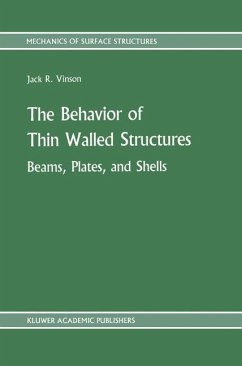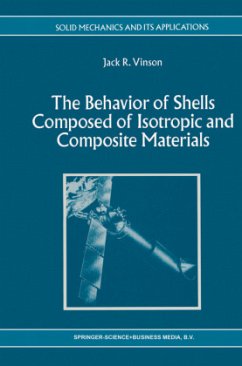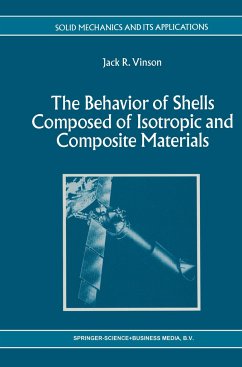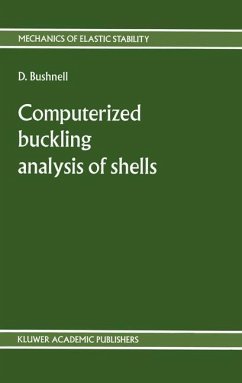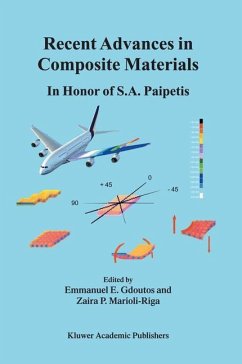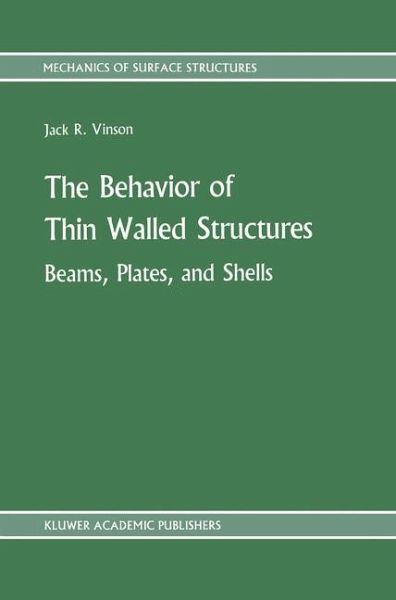
The Behavior of Thin Walled Structures: Beams, Plates, and Shells
Versandkostenfrei!
Versandfertig in 1-2 Wochen
77,99 €
inkl. MwSt.
Weitere Ausgaben:

PAYBACK Punkte
39 °P sammeln!
This book is intended primarily as a teaching text, as well as a reference for individual study in the behavior of thin walled structural components. Such structures are widely used in the engineering profession for spacecraft, missiles, aircraft, land-based vehicles, ground structures, ocean craft, underwater vessels and structures, pressure vessels, piping, chemical processing equipment, modern housing, etc. It presupposes that the reader has already completed one basic course in the mechanics or strength of materials. It can be used for both undergraduate and graduate courses. Since beams (...
This book is intended primarily as a teaching text, as well as a reference for individual study in the behavior of thin walled structural components. Such structures are widely used in the engineering profession for spacecraft, missiles, aircraft, land-based vehicles, ground structures, ocean craft, underwater vessels and structures, pressure vessels, piping, chemical processing equipment, modern housing, etc. It presupposes that the reader has already completed one basic course in the mechanics or strength of materials. It can be used for both undergraduate and graduate courses. Since beams (columns, rods), plates and shells comprise components of so many of these modern structures, it is necessary for engineers to have a working knowledge of their behavior when these structures are subjected to static, dynamic (vibration and shock) and environmental loads. Since this text is intended for both teaching and self-study, it stresses fundamental behavior and techniques of solution. It is not an encyclopedia of all research or design data, but provides the reader the wherewithal to read and study the voluminous literature. Chapter 1 introduces the three-dimensional equations oflinear elasticity, deriving them to the extent necessary to treat the following material. Chapter 2 presents, in a concise way, the basic assumptions and derives the governing equations for classical Bernoulli-Euler beams and plates in a manner that is clearly understood.





